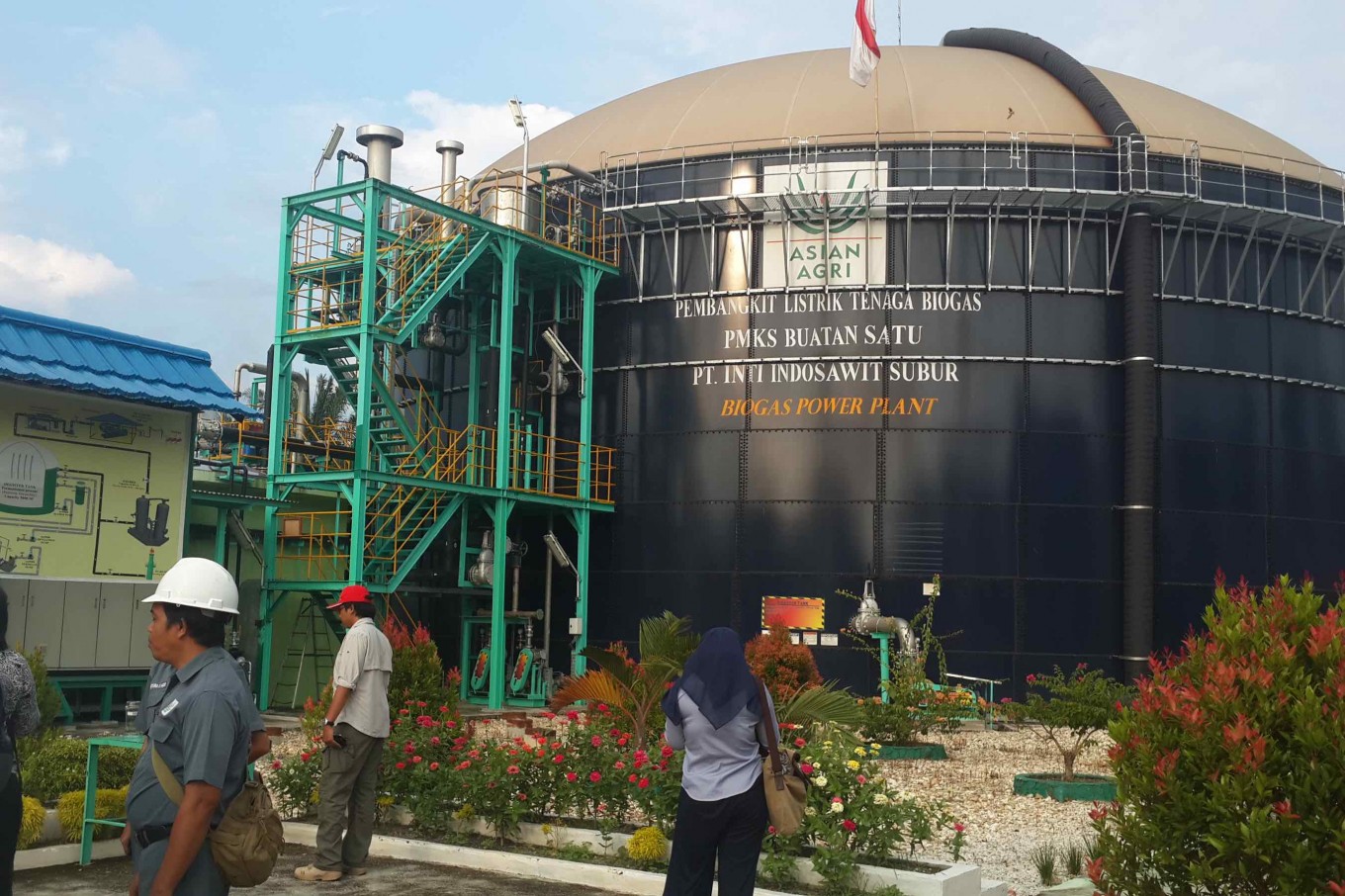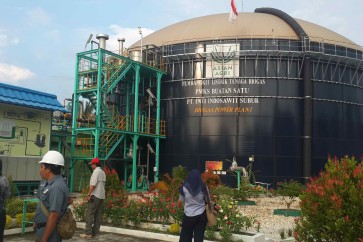Popular Reads
Top Results
Can't find what you're looking for?
View all search resultsPopular Reads
Top Results
Can't find what you're looking for?
View all search resultsIndonesia takes baby steps in palm oil waste management
Change text size
Gift Premium Articles
to Anyone
T
he government and palm oil businesses are painting a rosy picture for palm oil waste management, with recent technologies set to lessen the industry’s environmental impact.
Just last month, Coordinating Economic Minister Darmin Nasution expressed interest in algae-based liquid palm oil waste (POME) processing technology developed by Japan’s Mobiol Corporation and Tsukuba University. The machine is expected to minimize pollution while turning them into marketable products like aquatic and animal feed as well as docosahexaenoic acid (DHA), an omega-3 fatty acid used for food and medicine.
“The concept is very interesting, as it turns waste into cash,” Darmin said. “But we will have to try it outside the lab at several oil palm plantations before implementing it nationwide.”
Still, he said adopting such technology was important to address environmental concerns of the palm oil industry, including methane emissions. According to the ministry’s release, experts estimate that methane from POME is around 27 times heavier than the planet-warming carbon dioxide.
As the world’s biggest palm oil producer, Indonesia produces 455,000 tons of palm oil effluents daily, or about 156 million tons per year, which comes out of around 873 palm oil mills in Indonesia, according to the ministry’s data.
But the technology’s inventor, Tsukuba University professor Makoto Watanabe, expressed optimism that palm oil producers could alleviate environmental issues while getting four times their current earnings from DHA sales.
He cited as an example that the processing of waste from a 50,000-hectare oil palm plantation could help companies reap US$98 million (Rp 1.39 trillion) per year for aquatic and animal feed and $43 million per year for DHA sales.


















